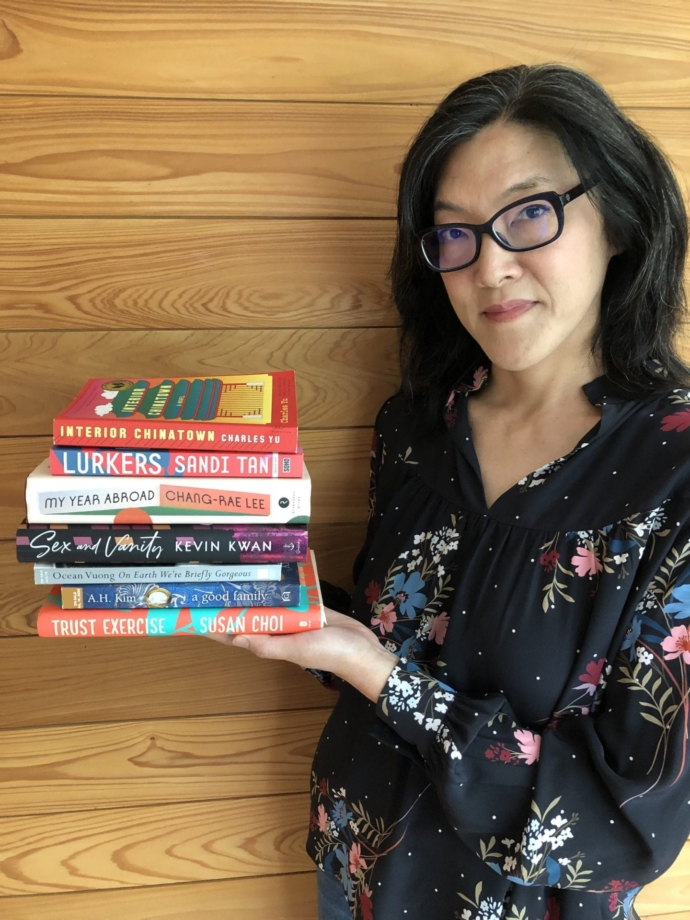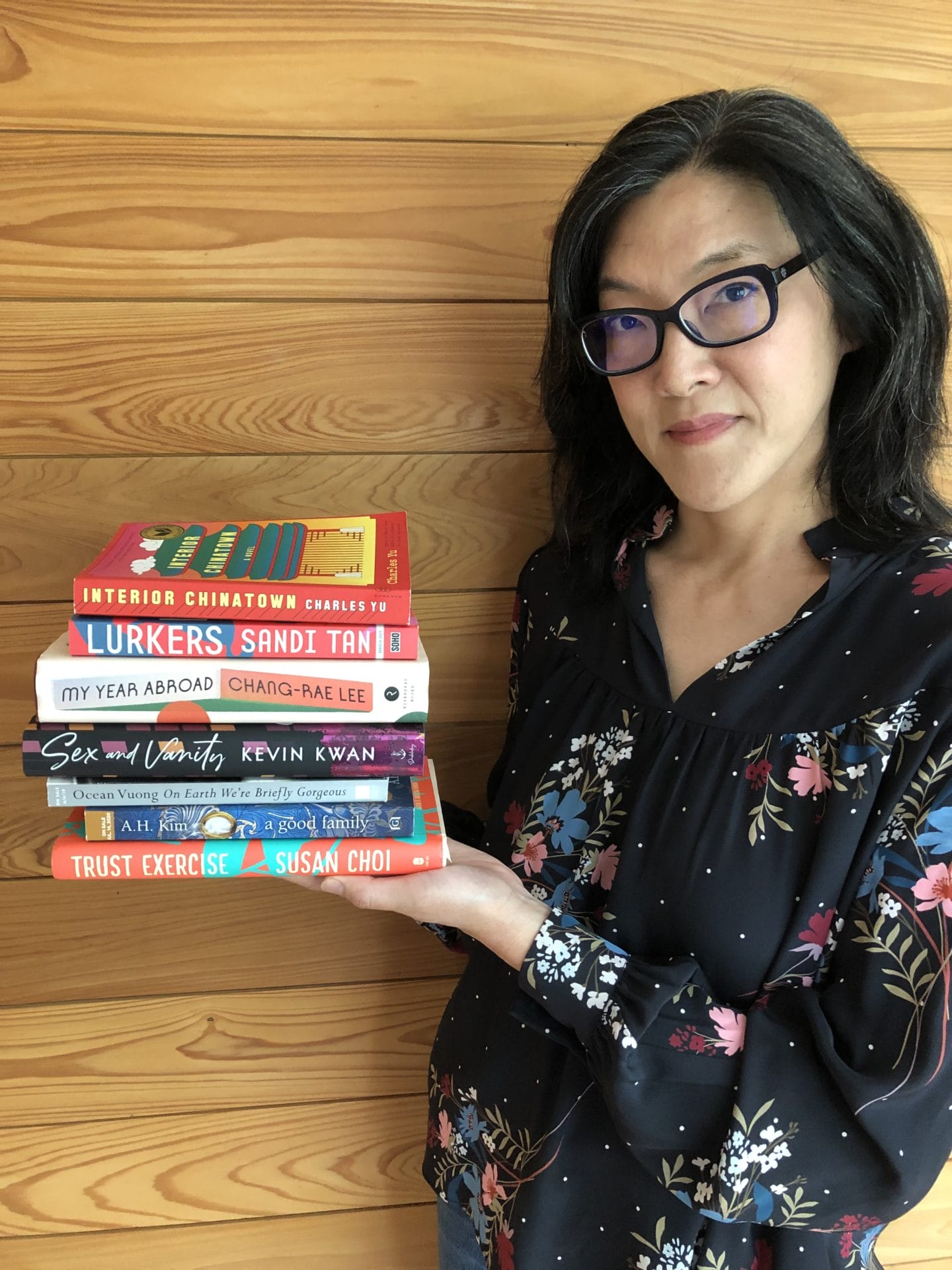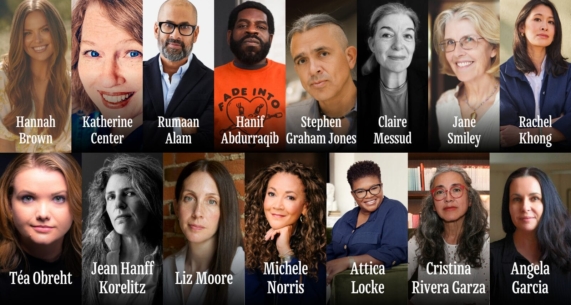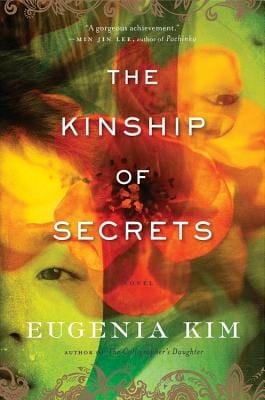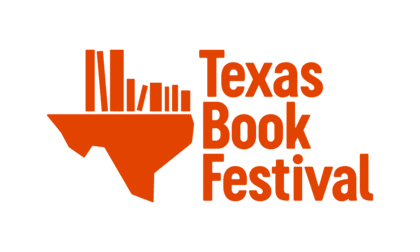In any given year, I read a fair number of books by Asian-American authors. The breadth of books by emerging and established Asian-American authors is exciting and encouraging, and I’m frankly thrilled that there are more great books by AAPI authors than I can possibly get to tackling in my TBR pile. This was not always so, and I’m envious of kids today who can read Linda Sue Park, Minh Lê, Grace Lin, Arree Chung, and Gene Luen Yang (to name just a few) along with Beverly Cleary (RIP), Roald Dahl, Sydney Taylor, Frances Hodgson Burnett, and all the children’s authors I loved to read as a kid. I wonder what it would have done to and for my identity, my sense of worth and belonging, had those narratives been widely available and celebrated in my youth. That representation is one of the many reasons our Reading Rock Stars and Real Reads programs are so, so important. I’m definitely making up for lost time now with the rich variety in AAPI adult lit today, and I hope to see even more of it in the years ahead.
I’m of course distressed and alarmed by the rise in attacks against Asian-Americans this past year, and it’s been a struggle to make sense of that hate in the context of my work at TBF. A person who has the capacity to randomly and viciously attack another human on the street is, I would venture to guess, not reading literature. So what does the call to action to amplify AAPI voices mean when the aggressors, or those that sympathize with their racist sentiments, are not listening or interested in learning? Who are we talking to when we talk about amplifying AAPI voices if those who most need to hear that message are not going to receive it? It’s yet another reason why it’s so important for children to be exposed to the perspectives and experiences of others through literature so they don’t grow up unable to see the humanity in people who look different from them. I’ve concluded that we—the readers and writers, the ones who care about and champion the inherent diversity within the human story—have the important job of even more loudly proclaiming our support for the AAPI community, for the Black community, for the Latinx community, and for all diverse communities—to show that there are more of us than there are of them.
So read more AAPI authors with me, with TBF, and share the books you like and love with those around you, and let’s show up those bullies.
Charles Yu’s National Book Award-winning Interior Chinatown is structured as a screenplay exploring and exposing stereotypes in American film and culture through the experiences of Willis Wu, an aspiring actor who is trapped in a hall of mirrors of clichéd roles where there is no place for Asian humanity in a binary world of black and white.
Twitter: @charles_yu
We loved hosting Kevin Kwan at the 2020 Texas Book Festival for his latest bestselling novel, Sex and Vanity, where he retells and reimagines E.M. Forster’s Room with a View through multi-racial and fabulously wealthy characters on Capri.
Instagram: @kevinkwanbooks
Twitter: @kevinkwanbooks
If you missed reading Ocean Vuong’s poetic and celebrated debut novel in 2019, On Earth We’re Briefly Gorgeous is most definitely worth picking up, with a narrative constructed a Vietnamese son’s letter to his illiterate mother.
Instagram: @ocean_vuong
I knew A.H. Kim in my childhood when our parents were part of a close immigrant community in Buffalo, New York, and am so proud that she’s published her first book, A Good Family, that’s a page-turner about family members behaving badly, with vivid details on the lives and flaws of the aspirational class.
Instagram: @ahkim.writer
Twitter: @AhkimAuthor
Susan Choi, another TBF alum who was at our 2019 Festival for her National Book Award-winning Trust Exercise, is a book I’m still thinking about, with its complex narrative structure, unreliable narrators, and layered treatment of adolescence, power, and abuse.
Instagram: @susanmchoi
Shirkers filmmaker Sandi Tan’s newly released Lurkers details the lives of three families who live on Santa Claus Lane in an LA suburb that feels very LA in the you-don’t-know-your-neighbors kind of way. Its dark humor and subject matter are not for the sentimental, but perfect for readers who will appreciate Tan’s cinematic style, unflinching portrayal of race, family dynamics, sexual predation, and alienation.
Instagram: @_sanditan_
Twitter: @sanditan
Don’t be intimidated by the page count in Chang-Rae Lee’s latest masterpiece, My Year Abroad. Just jump in and ride the waves of this wildly creative and crazy narrative. Lee’s latest is a departure from his more somber earlier work. Here, you meet and fall in love with Tiller, a somewhat lost college student looking for purpose and direction, and the mesmerizing Pong, a Chinese entrepreneur chasing fulfillment via material excess and chemistry-laden concoctions. Tiller is haunted by the past as he tries to find absolution in the present and his place in the disorienting landscape of American materialism, tribalism, complacency, dishonesty, and aspiration. Lee writes with such precision that you can’t help but experience the novel as both the very entertaining/disturbing story of Tiller’s experiences and the telescoping out to an ever-widening lens on the American condition of hope, longing, and dislocation. Lee’s writing is exuberant–sentences that hum and sing, chock-full of clever allusions and philosophy. It’s a surfeit but go ahead and feast along, just like his characters do.

